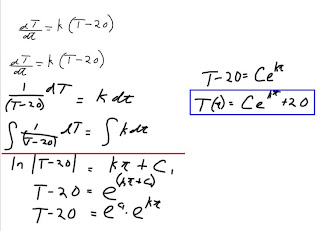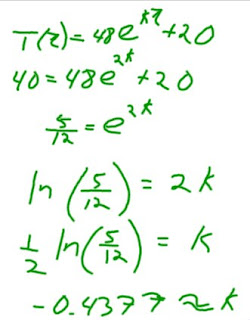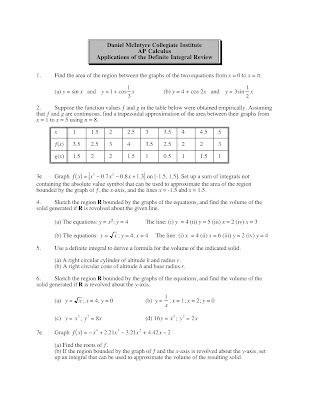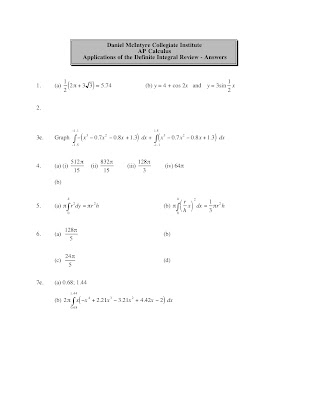Ahoy everyone! This is Jann, and I'll be your scribe for today.
We have finally finished the whole course. Today, we looked at some word problems on Differential Equations.
Here we go...
(Note: I will be using Mr. K's slides... )
In order to solve this problem, we need to find the
parent function.
dy/dx is some constant multiplied by the parent function. We know that the temperature,
T, varies with respect to time.
(Basically, the temperature of the roast decreases over time) We need to find 2 points on the parent function...
At time,
t=0, the initial temperature of the roast, which is 68 degrees F. Therefore, we have our first point,
(0,68). For our second point, at time,
t=2 hours, the temperature of the roast is down to 40 degrees F. This is our second point,
(2,40).

Then, after acquiring the 2 points in the parent function, we integrate the formula. The
Red Line shows that the calculus part of the problem ends. The following line is all
Pre Calculus stuff. If we can recall our natural law from Grade 12 PreCal, "
kt + C" is an exponent. Therefore, it is an exponent of the base "
e". "
e^C1" can be substituted into "
C" because it is a constant. Then, we isol

ate the "
T" in order to obtain the
Parent Function.
Now that we have the structure of the parent function, we can solve for the missing terms such as "
C" and "
k".

Now that we have the parent function. We are ready to solve the problem...

Then, we looked at one more example...



That's all we did today in class. We were suppose to look at another example, but we ran out of time. Good day everyone! XD
Oh yeah... next scribe is
Crystal.






































